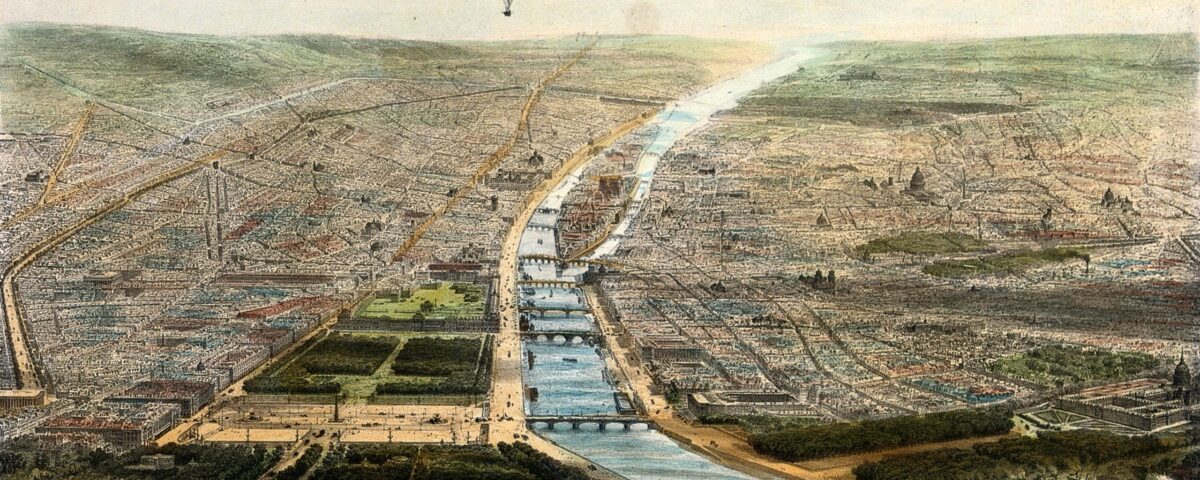AfLIA joins TAROCH to champion equitable access to cultural heritage in Africa

A hot-air balloon travels over part of Paris by Jules Arnout. Wellcome Images via Wikimedia Commons is licensed under CC BY 4.0.
5 FEBRUARY 2025
AfLIA has joined the TAROCH (Towards a Recommendation on Open Cultural Heritage) Coalition, a global initiative led by Creative Commons advocating for a UNESCO Recommendation on Open Cultural Heritage. This aligns with AfLIA’s mission to ensure equitable access to Africa’s rich cultural heritage—spanning tangible and intangible expressions, historical documents, and indigenous knowledge—which remains largely inaccessible in digital spaces.
The Coalition
Creative Commons (CC) is currently building a Coalition of diverse organizations and institutions from across the globe. The TAROCH (Towards a Recommendation on Open Cultural Heritage) Coalition is championing the need for a UNESCSO Recommendation that would provide the route to fair and equitable opening up of cultural heritage. Such an instrument would be an international standard-setting tool that would ‘proactively promote and encourage open solutions to removing barriers to accessing cultural heritage in the public domain, being mindful of the various governance frameworks that determine the ways in which cultural heritage is shared and used… as a means to deliver on UNESCO’s mandate and ambitions in relation to cultural and information policy, particularly intercultural dialog and cultural exchanges, in order to contribute to building more connected, resilient, and sustainable societies.’ Thus, the primary goal of the TAROCH Coalition is to have a UNESCO Recommendation on Open Cultural Heritage.
How would this affect African cultural heritage?
Africa’s cultural heritage which is made up of the continent’s tangible and intangible artistic expressions in different formats (wood, stone, clay, textiles, canvas, apparel patterns, traditional monuments and architectural designs) as well as norms, values, spiritual artifacts, festivals, dances, songs, sayings, myths, folktales, huge body of practices and knowledge passed one from one generation are not yet fully accessible in digital spaces. Historical documents and rare books found mostly in private libraries and collections of historical figures that played significant roles in communal leadership, independence struggles, nation building, education and other sectors in Africa through the ages are also hard to access online. Where these resources exist, they are not freely available for use or adaption. This hinders universal accessibility, preservation, the diffusion of knowledge, creativity and robust engagements with the different facets of African cultural heritage which may promote misinformation in the retelling of African history and collective amnesia.
Alignment with objectives
With the belief that fair and equitable access to Africa’s cultural heritage would be a right step towards achieving digital equity and inclusion for the continent, AfLIA has joined the TAROCH Coalition. This is based on the alignment of the organisation’s mission with the objectives of the Coalition and her capacity to lead the African library and archival professionals sector into a deeper understanding of the importance of opening up Africa’s cultural heritage.
Other organizations can join too!
Other organizations within Africa who believe in opening up access to Africa’s knowledge and cultural heritage can read the Statement of Commitment and fill the application form
